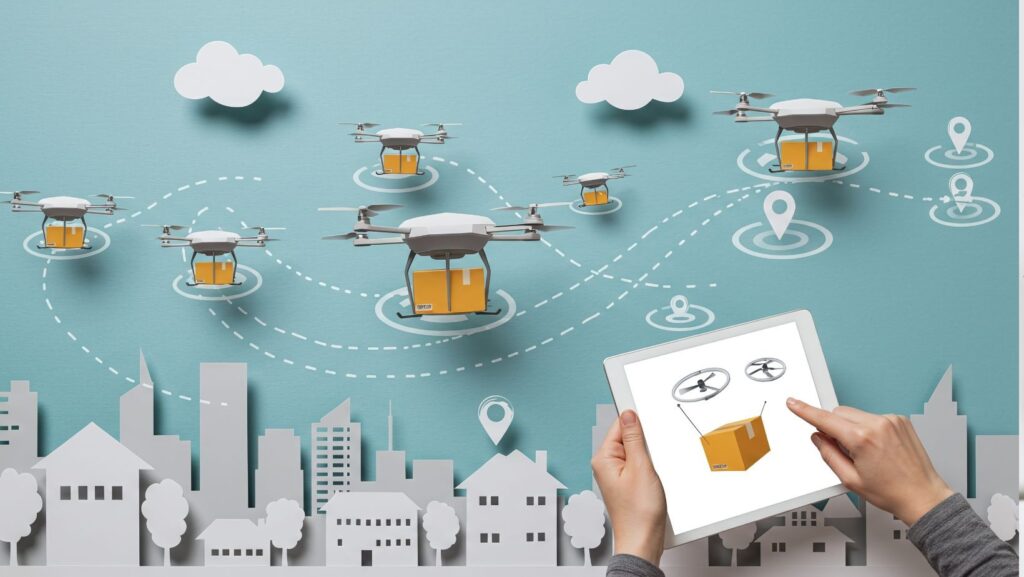
Cities are evolving faster than ever before. As populations grow and expectations shift, urban planning is moving toward smarter, more efficient and more human-centered solutions. The cities of tomorrow won’t just be bigger; they’ll be better designed, more sustainable, and far more responsive to the needs of the people who live in them.
Below are some of the most promising smart urban solutions that are already transforming modern city life.
Intelligent Transportation Networks
Future-ready cities prioritize movement that’s smooth, predictable and environmentally responsible. Integrated transport systems that combine real time data, smart traffic signals and efficient public transit help reduce congestion and make daily commutes more manageable. These networks also make it easier to plan routes, reduce carbon output and maintain safer roads.
Green Infrastructure that Supports Climate Resilience
Modern cities are investing in green roofs, urban forests, permeable pavements and stormwater gardens to manage heat and improve environmental health. These features help cool urban areas, reduce flooding and support biodiversity. Green infrastructure is increasingly seen as essential for tackling the long-term impacts of climate change.
Energy Efficient Buildings and Smart Grids
Smart grids allow buildings and homes to communicate with energy providers, improving reliability and reducing waste. Combined with sensors, automation and efficient design, buildings can optimize their own heating, cooling and lighting. This lowers energy use while creating healthier and more comfortable indoor environments.
Data Driven Public Services
Cities are using data insights to improve everything from waste collection to emergency response. Sensors and analytics help identify problems early, allocate resources more effectively and streamline public services. Smart bins, digital reporting tools and predictive maintenance systems are examples of how data driven thinking is reshaping efficiency.
Clean Air and Environmental Monitoring
Air quality sensors, climate monitors and pollution tracking systems give city planners real time insights into environmental challenges. This information helps guide policies that reduce emissions, improve public health and support greener transportation choices. Cleaner air is a cornerstone of future urban wellbeing.
Urban Comfort Technology for Public Spaces
Outdoor comfort is becoming a central priority in modern design. Cities are now using shading structures, temperature-moderated materials and advanced anti-loitering management systems to make public spaces more enjoyable year-round. For example, technologies like this Mosquito loitering device help create outdoor environments that feel safe, comfortable and inviting. These innovations support longer visits, stronger community interaction and more active public life.
Mixed Use Developments that Reduce Travel Needs
Tomorrow’s cities are moving away from strict zoning. Mixed-use developments combine housing, workplaces, entertainment and green spaces in walkable clusters. This reduces travel time, supports a sense of community and encourages healthier lifestyles.
Smart Waste and Resource Management
Automated waste sorting, composting hubs and digital tracking systems help cities reduce landfill use and increase recycling rates. Smarter resource management supports sustainability goals while cutting long-term operational costs.

Public Spaces Designed for Interaction
Smart urban design emphasises spaces where people can connect. Plazas, green corridors, seating clusters and pedestrian zones encourage residents to socialize, rest and explore. These people-focused environments support community bonds and contribute to overall well-being.
Tech-Enabled Safety and Security
Advanced lighting, community alert systems and intelligent surveillance tools help keep neighborhoods safe while respecting privacy. These technologies support quicker emergency response and better risk prevention, contributing to safer and more resilient cities.
Cities of Tomorrow Start With Smart Choices Today
Smart urban solutions aren’t just about technology; they’re about improving the quality of life. When cities use innovation thoughtfully, they become more sustainable, more connected and more enjoyable for everyone.







